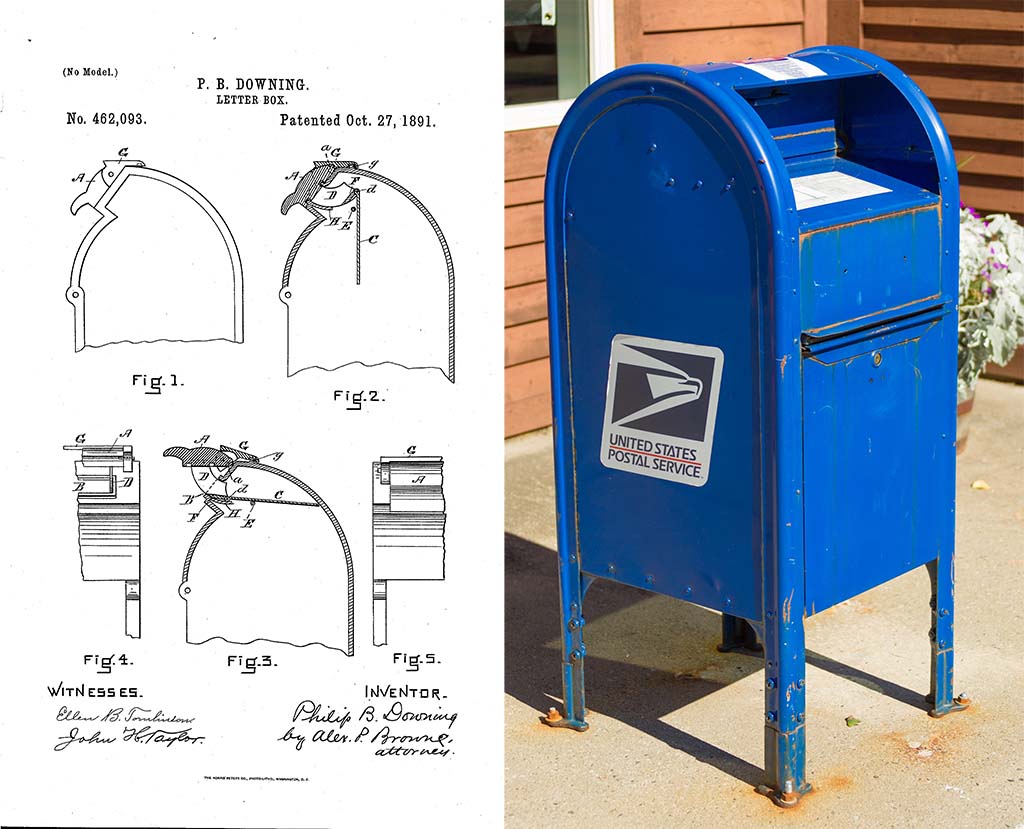In 1891, a black man known as Philip Bell Downing invented the mailbox to shelter letters from elements.
To date, Downing’s invention still impacts society. In a bid to protect mails from theft and poor weather conditions and also expand the postal system so that people can mail letters without having to walk to the post office, he patented a device he called “street letterbox”.
During the late 1900 and 20th century, Downing successfully filed five patents with the United States Patent Office.

Among his significant inventions were a street letter box (U.S. Patent numbers 462,092 and 462,093) and a mechanical device for operating street railway switches (U.S. Patent number 430,118).
Born in Providence, Rhode Island on March 22, 1857, to Serena L. deGrasse and George T. Downing, an abolitionist and business owner who was the manager of the U.S. House of Representatives’ dining room.
Downing’s grandfather, Thomas Downing was also a successful businessman. He established the Downing’s Oyster House in the district of Manhattan in 1825 which became one of the city’s best-known dining and catering establishments.
At the time, to mail a letter one needs to go all the way to the post office but thanks to Downing, such longs trips are now a thing of the past.
He designed a metal box with four legs called “street letterbox”, which became the predecessor of today’s mailbox.

His design looked just like the mailboxes that are now everywhere, a tall metal box with a secured, hinged door to drop letters. His invention allowed for drop off near one’s home and easy pick-up by a letter carrier.
His idea for the hinged opening prevented rain or snow from entering the box and damaging the mail.
Meanwhile, Downing had earlier patented an electrical switch for railroads which also allowed railroad workers to supply or shut off power to trains at appropriate times.
On June 17, 1890, the U.S. Patent Office approved Downing’s application for “new and useful Improvements in Street-Railway Switches.” This particular invention allowed the switches to be opened or closed by using a brass arm located next to the brake handle on the platform of the car.
Based on his design, innovators would later create electrical switches such as light switches now used at homes.
Reportedly, Downing played an important role in founding the United Anti-Slavery Society of the City of New York in the mid-1830s.
Many years later, on January 26, 1917, Downing would receive another patent (U.S. Patent number 1243,595), for an envelope moistener, which utilized a roller and a small attached water tank to quickly moisten envelopes.
The year that followed saw another successful application with U.S. Patent number 126,9584 for an easily accessible desktop notepad.
He worked as a clerk with the Custom House in Boston, Massachusetts until he retired in 1927 after more than 30 years of service.
Downing died aged 77 in Boston on June 8, 1934.









